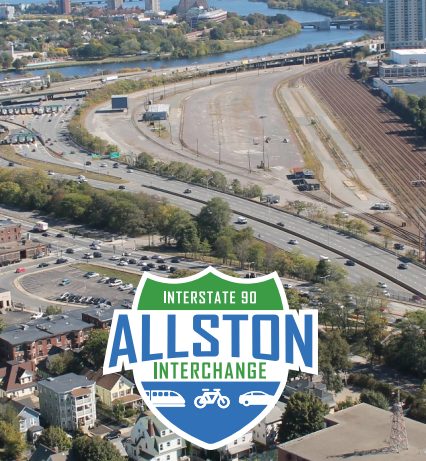In full transparency, the following is a press release from MassDOT
***
[broadstreet zone=”59982″] |
BOSTON – The Massachusetts Department of Transportation (MassDOT) today announced it will begin to focus on advancing the Modified At-Grade design for the Allston Multi-Modal Project.
Advancing this option will require an extensive effort with stakeholders and partner agencies for funding and design and permitting work to prepare a Notice of Project Change.
The development of a comprehensive finance and mitigation plan will also be necessary, including securing anticipated federal infrastructure funding increases, local stakeholder contributions, and other potential funding options. MassDOT will not increase tolls for drivers on I-90 to finance the project.
[broadstreet zone=”59983″] |
The decision to devote resources to advancing the Modified At-Grade design comes after significant stakeholder engagement, input and support from elected officials and the Allston Multimodal Project Task Force, critical land provided by Boston University, and a collaboration between engineers at the Massachusetts Bay Transportation Authority (MBTA), Department of Conservation and Recreation (DCR), and MassDOT to mitigate limitations to necessary infrastructure in the throat section that would have required 4 feet of roadway in the Charles River.
The next meeting of the Allston Multimodal Project Task Force is scheduled for Thursday, October 21, and will primarily focus on the next steps to advance the Modified At-Grade option, including the need for developing a comprehensive finance and mitigation plan.
In May, MassDOT announced the use of one-time funds to advance the approximately $75 million Phase I of the Allston Multimodal Project. By accelerating this first phase of the multi-modal project, MassDOT ensured the near-term safety of the viaduct and reduces the risk of emergency repairs that would impact rail and road users – while providing the time for complex engineering that ultimately led to finding the additional 4 feet and advancing a consensus option.
[broadstreet zone=”59984″] |
Advancing design and permitting work on the Modified At-Grade option carries several regional and local benefits, that include:
- Removing approximately 3,500 feet of elevated bridge structure to allow for an improved gateway into the city for both highway, and trail users.
- Improving I-90 geometry with flatter and straighter alignment resulting in better sight lines and safer driving conditions.
- Mitigating longer-term maintenance and life-cycle costs, as well as potential lane closure disruptions associated with the elevated viaduct.
- Replacing the Grand Junction Bridge over Soldiers Field Road (SFR), resulting in a step closer for future passenger rail service to Cambridge.
- Eliminating the visual barrier of the elevated viaduct and providing enhanced neighborhood views.
[broadstreet zone=”70107″] |
- Providing a fully separated and widened Paul Dudley White (PDW) Path for pedestrians and bicycles.
- Providing a straighter and more direct PDW Path in the vicinity of the Grand Junction Bridge over SFR and Boston University Bridge.
- Incorporating a boardwalk in the Charles River resulting in improved views and more separation from passenger vehicles along SFR for users of the PDW Path.
- Incorporating a vegetated buffer between PDW Path and SFR.
[broadstreet zone=”53130″] |
- Allowing for an attractive and highly desired pedestrian/bicycle connection from Agganis Way to Charles River.
- Public support and consensus of local elected officials, various stakeholders and advocates, and residents.
For additional information, please visit:
[broadstreet zone=”59947″] |

